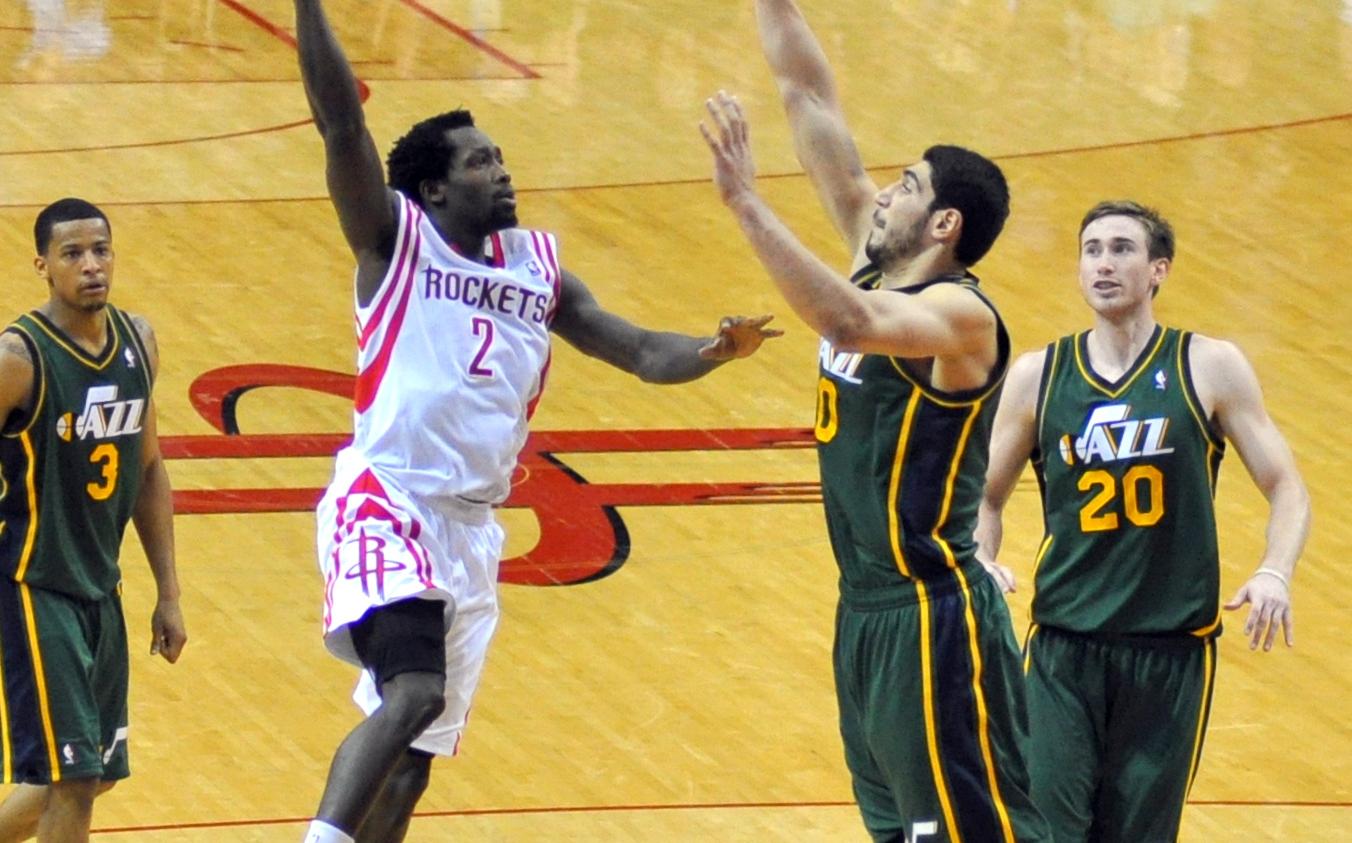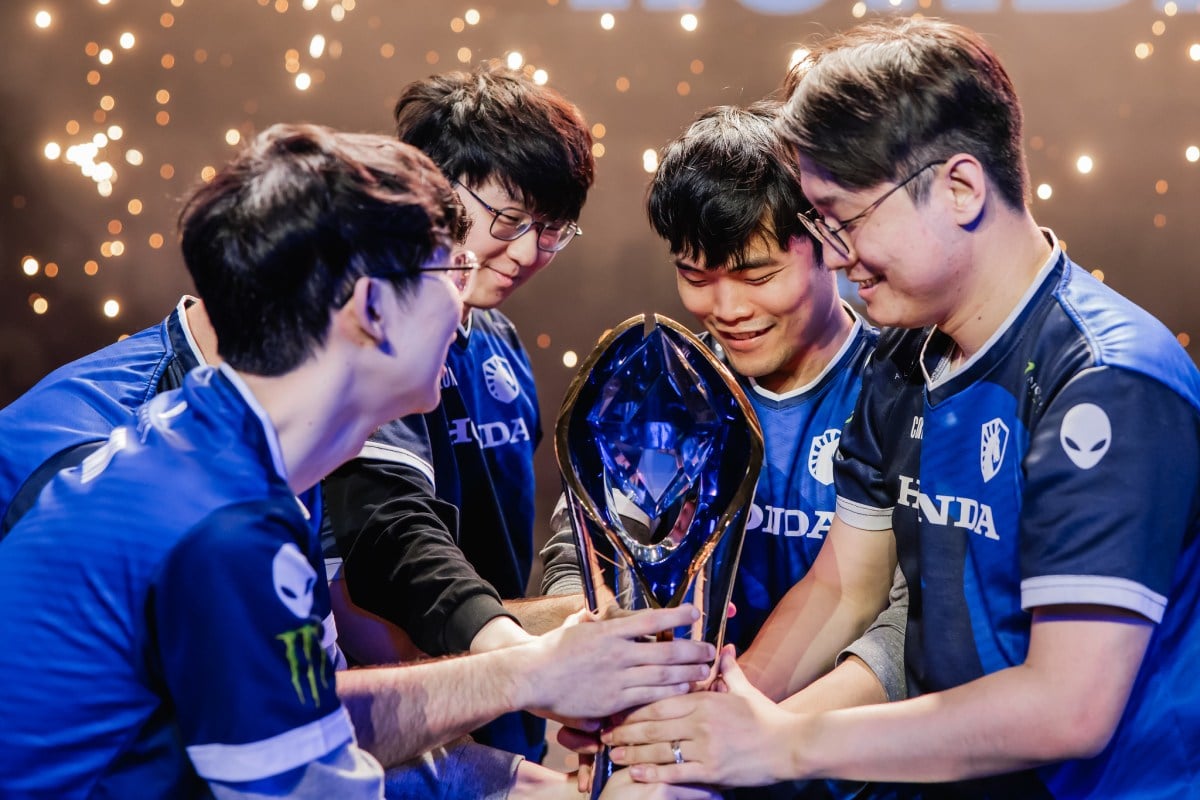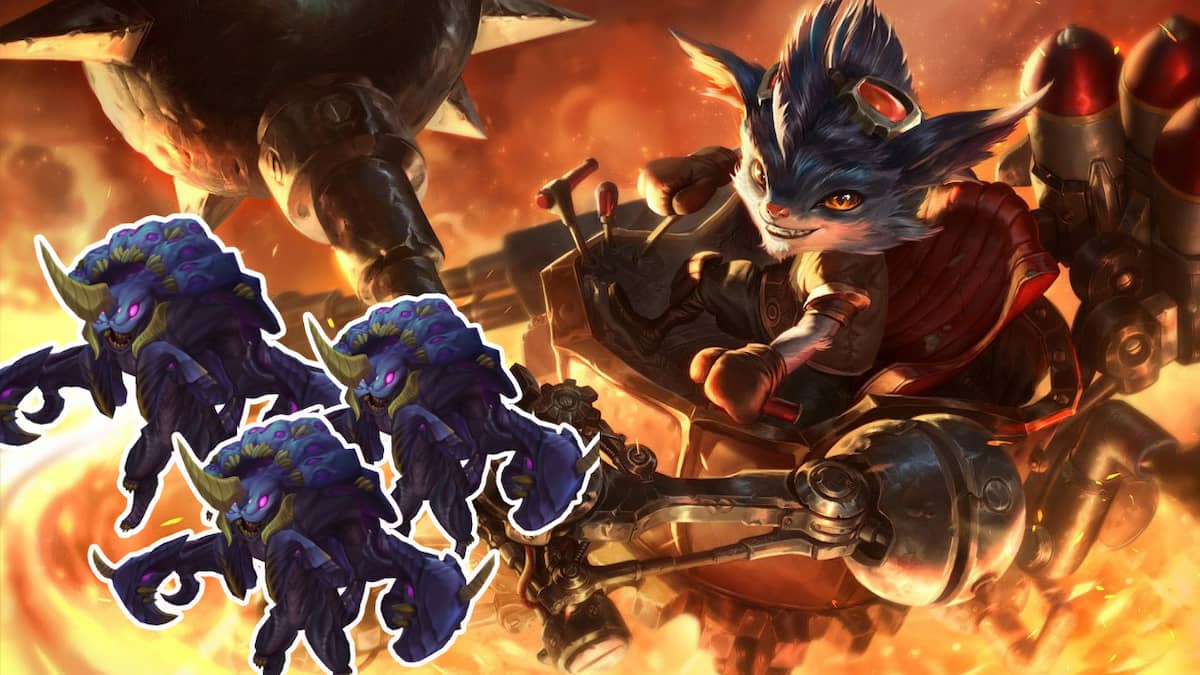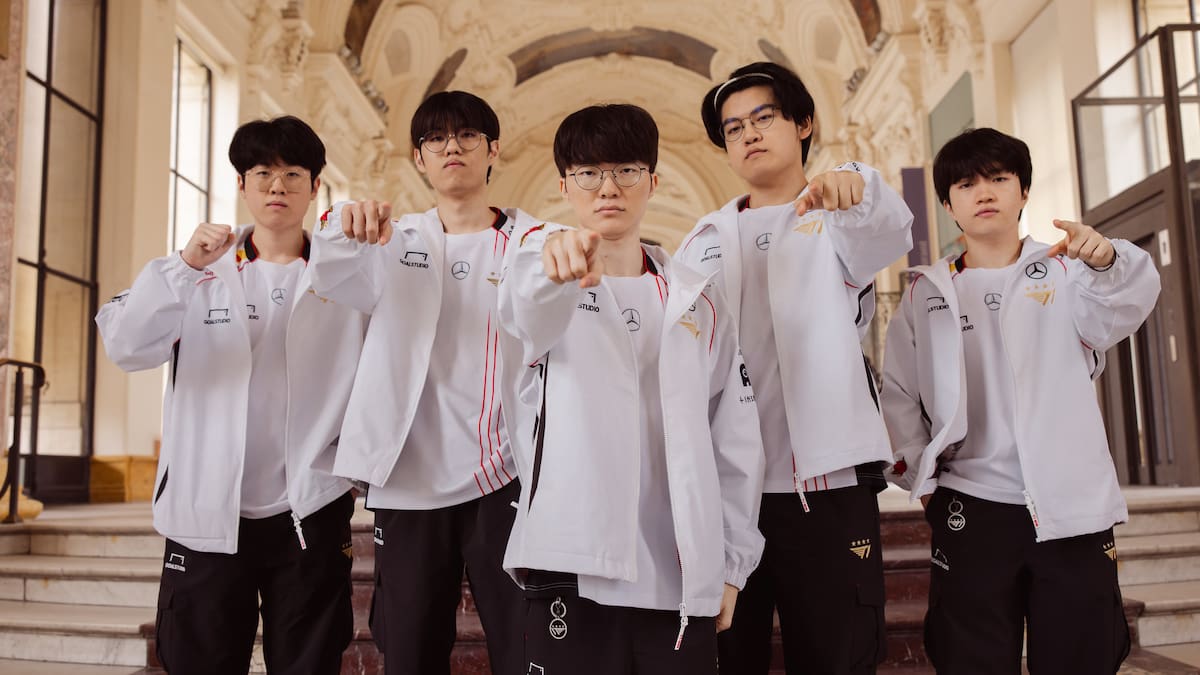Who do you call when esports are under assault from the world of sports talk radio? How about a 6-foot-8-inch basketball star with roots in competitive gaming?
That aptly describes Gordon Hayward, a player for the NBA’s Utah Jazz. He averages more than 19 points per game in the world’s most competitive basketball league, is playing his way through a $63 million contract, and his favorite streamers are Counter Logic Gaming’s acclaimed bottom lane duo.
Hayward was among the loudest of the voices responding to comments made by sports personality Colin Cowherd when the shock jock took his best shot at the competitive gaming movement. Cowherd, who in April compared watching esports to putting a gun in his mouth, let loose a fresh salvo in September, directly addressing the criticism of his position.
“The fact that all these esports nerds are upset with me… I’m hitting a very, very sensitive spot,” Cowherd said.
Hayward took to Twitter and offered a response, which led to him appearing on Cowherd’s show. But what made his position stand out was that he was speaking as one of the world’s elite professional athletes who also understood the appeal of esports.
Hold up…@ColinCowherd is making fun of gamers for being dorks? People in glass houses… pic.twitter.com/L5UjhErkyT
— Gordon Hayward (@gordonhayward) September 30, 2015
“I’m the type of person who just wants to do everything competitively,” Hayward told the Daily Dot. “I love competing, and gaming is another outlet for that.”
Hayward’s credentials check out. Like many of his generation, he was raised on the popular video game consoles of the day, running the gamut from the NES to the Nintendo 64 and Xbox. Like many, he became a big fan of the Halo series.
From there, Hayward took his love of the game to the next level. He joined a team and attended tournaments where he competed for cash prizes. He even had to check with his college basketball coach at Butler to make sure his participating in the events wouldn’t violate the notoriously strict NCAA rules and regulations.
Hayward isn’t alone. Many modern athletes pursue both traditional sports and esports, seeing them merely as different platforms for competition just as Hayward does. But his success in basketball combined with his competitive gaming experience makes his perspective unique and gives him a platform through which to discuss common misconceptions.
“Games are associated with being lazy, but the competitive scene is so much different,” Hayward said. “You’re a professional, you have a team, you’re in constant communication, even more so than in basketball. It’s stressful and it’s a job.”
Indeed, competitive gaming at the professional level is as intense a pursuit as any found in traditional sport. Rigorous training of 12 hours or more per day is to be expected at the highest levels, especially when preparation is at its most intense.
For examples of this, one need look no further than the ongoing League of Legends World Championship. The tournament, which has in the past drawn more than 32 million concurrent viewers, features the best League of Legends teams from around the world. Hayward is doing his best to keep up in spite of a busy playing and practice schedule building up to the NBA season kicking off on Oct. 27. His observations are similar to those of many other fans watching at home.
“It’s unfortunate that all the North American teams are out already,” Hayward bemoaned.
While his NBA career combined with the arrival of a child leave him with less time than he once had for solo queue ventures and local tournaments, Hayward still keeps up with the competitive scenes he was once a part of through Twitch, naming Yiliang “Doublelift” Peng and Zaqueri “Aphromoo” Black as being among his favorite streamers.
Hayward sees the writing on the wall in esports. The industry is only expanding, and will continue to do so as each new generation comes to see it as his does. Antiquated views and stereotypes will fade as stadiums fill and millions tune in to watch online. But that eventuality won’t stop the basketball star from speaking his mind when he feels it’s necessary.
“I just wanted to defend the esports community,” he said. “I’m very passionate about gaming and don’t like to see people say things about it when they’re misinformed.”






Published: Oct 18, 2015 11:36 am